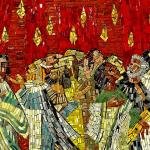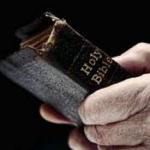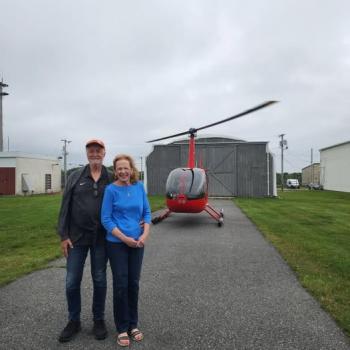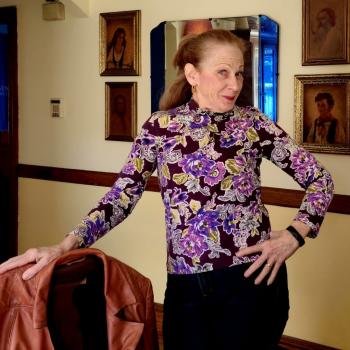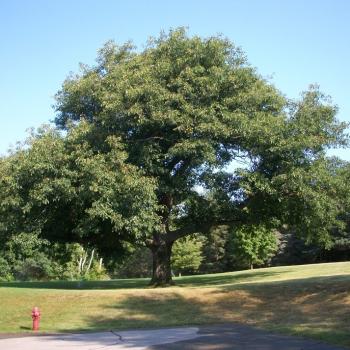Two-time Pulitzer Prize winning historian David McCullough was the speaker at Providence College’s Commencement exercises last Sunday. His presence reminded me of when I met McCullough (I tried not to be too much of a groupie) four and a half years ago.
In October 2013, McCullough was the invited keynote speaker at the dedication of our beautiful new Ruane Center for the Humanities; in an education world in which institutions of higher education are marginalizing, downsizing, and even occasionally eliminating the humanities from their curricula, Providence College doubled down on what we do best–the liberal arts–and spent millions of dollars to prove its dedication to its mission. Here’s an excerpt from McCullough’s remarks:
I feel to the depths of my being that this emblematic new building is not only a step in the right direction for Providence College, but for our country. We need to be reminded about who we are and how we got to be here.”
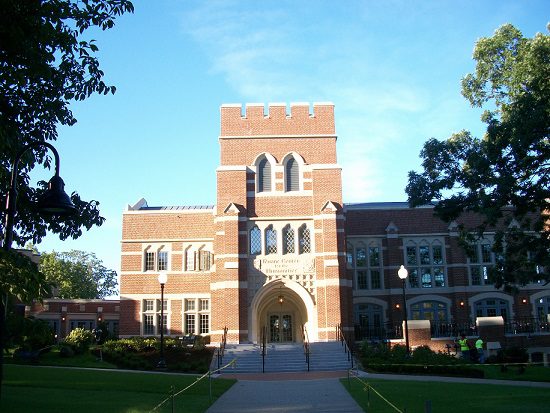
As the director at the time of the large, interdisciplinary program required of all Providence College students whose classes all take place in the new building, I was asked, as part of a series of speakers including McCullough, to bring greetings to the several hundred people gathered from the faculty. It gave me the opportunity to consider the value of a liberal education. Here’s what I said.
My father, an itinerant Baptist minister, once told me about a plaque on the preacher’s side of the pulpit in one of the many churches in which he sermonized during my growing-up years. The pulpit plaque challenged the person giving the sermon directly by asking “What are you trying to do to these people?” As director of the Development of Western Civilization [DWC] program that has just finished its first month in this glorious new building that we are dedicating today, I frequently ask myself this question and bring it regularly to the DWC faculty. 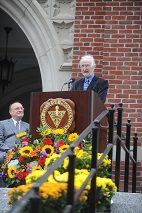 “What are we trying to do to these people, these students who have chosen, along with their families, to make a Providence College liberal arts education a central part of their plans for a flourishing future?”
“What are we trying to do to these people, these students who have chosen, along with their families, to make a Providence College liberal arts education a central part of their plans for a flourishing future?”
Just as I usually start DWC faculty meetings with “Here’s what we are not talking about today,” a good answer to “What are we trying to do to these people” might begin with understanding what we are not doing as well. In DWC, for instance, we are not conducting a four-semester long museum tour, spending last week in the Homer wing, this week in the Herodotus wing, and next week in the Sophocles section, bemused by how quaint and how different things were back then.
As I often tell my students, if we can’t find something directly relevant to us in what we read and discuss, something of importance to twenty-first century people, we’re wasting our time. So how do we make the connection between the past and the present in such a way as to shape a better future? Brief passages from two different authors, a Lutheran pastor and an Anglican bishop, have recently helped me frame this question anew.
Nadia Bolz-Weber writes that You have to be deeply rooted in tradition in order to innovate with integrity.A liberally educated person knows where she comes from. Athena may have sprung fully formed from Zeus’s head, but a liberally educated person is shaped, molded, and formed by continual and intelligent immersion in the greatest works and ideas of the past. A liberal education is not a museum tour. It is a deliberate and extended engagement with where we come from; such an engagement forms the foundation a well-lived and creatively expressed life.
Rowan Williams writes that To read means to reread. If we are to gain any meaning out of the past, we must energize it in terms of the present. Contrary to a favorite phrase among Rhode Islanders, liberally educated persons are never “all set.” The ultimate purpose of a liberal education is to establish the tools and habits of lifetime learning, tools and habits that will help shine a new light on everything, even things you thought you already knew.
The past, whether my past or a text from several thousand years ago, becomes new each time it is considered, shining a new light on possible futures. Two weeks ago in a seminar on the Odyssey, I understood a text that I thought I knew thoroughly in a brand new way as a student compared the challenges faced by Odysseus and Penelope once he makes it back to Ithaca with similar challenges faced by veterans returning from Iraq and Afghanistan and their families.
This beautiful new building has been in full pedagogical operation for a month, and the early returns are wonderfully positive. Students and faculty walk the halls with smiles on their faces. There are students already studying and conversing in the Great Room when I arrive at 7:30 every morning. Several colleagues have reported that they are having the best seminars of their lives.
The faculty has not become smarter, the students aren’t necessarily better, but we are teaching and learning in a building whose beauty and elegance matches the beauty and elegance of what takes place inside on a daily basis—preparation for a life of learning and excellence. Since the DWC offices were moved into the Ruane Center two months ago, I frequently find myself wandering the halls alternating between smiling and pinching myself to make sure that this is truly our building.
To take the Apostle Paul out of context, “old things are passed away; behold, all things are become new.” On behalf of the Providence College faculty, I have two words to say to all of those on the stage and all those out there who contributed to making this dream a reality: THANK YOU.


